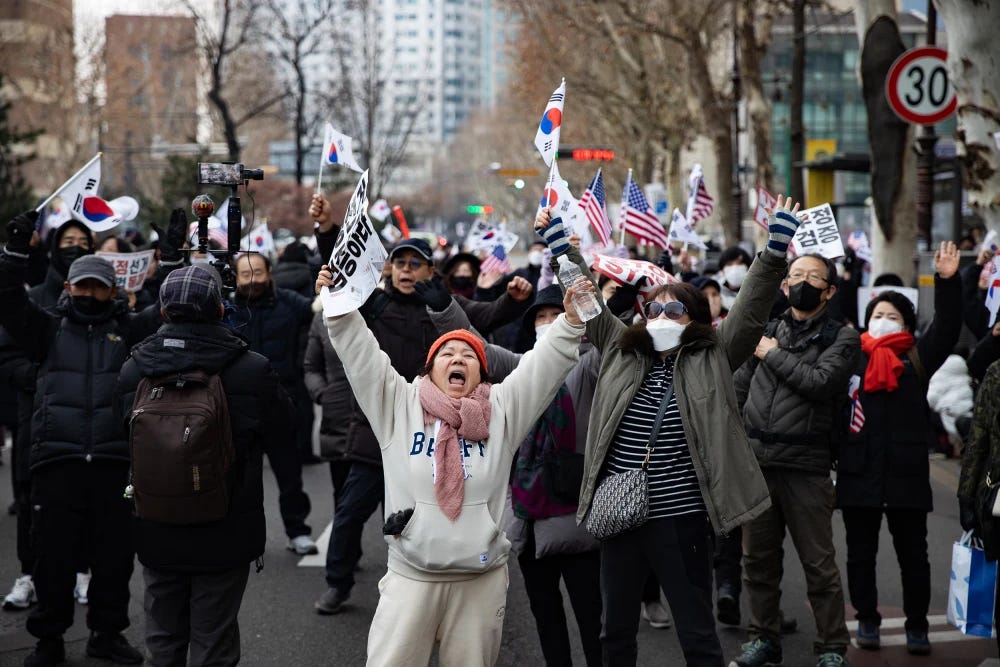South Korean President Yoon Avoids Questioning Amid Heightened Security After Court Building Rampage
Dozens face arrest after President Yoon’s supporters storm court building in protest of detention extension.
SEOUL, South Korea — South Korea's embattled President Yoon Suk Yeol declined to answer questions on Monday as part of an investigation into potential insurrection, following violent protests from his supporters who stormed a court building in retaliation for a ruling extending his detention.
In the wake of the chaos, authorities have intensified security measures at both the Seoul Detention Center, where Yoon is being held before his trial, and at the Constitutional Court, which is deliberating his impeachment.
Yoon became the first sitting South Korean president to be arrested last week after his brief declaration of martial law on December 3 sparked a national controversy. Last Sunday, a court formally approved the extension of his detention, citing concerns over potential evidence destruction.
Following the ruling, dozens of Yoon’s supporters clashed with police and destroyed property at the Seoul Western District Court building. The violent mob overwhelmed law enforcement, using broken barricades to attack officers. Police plan to arrest 66 individuals involved in the rampage for charges including trespassing, obstructing official duties, and assaulting officers.
Acting Justice Minister Kim Seok-woo confirmed that further offenders are still being identified and legal actions will be taken against them. Acting President Choi Sang-mok expressed his strong disapproval of the violence, urging law enforcement to strictly enforce the law to prevent future incidents.
Footage from the scene showed protesters, some armed with fire extinguishers, forcibly entering the building in the early hours of Sunday morning. At least one judge’s office was damaged during the attack, with protesters livestreaming the events on social media.
Yoon’s refusal to cooperate with the Corruption Investigation Office for High-Ranking Officials (CIO) on Monday adds to his ongoing defiance in the investigation. His legal team has challenged the legitimacy of the detention and investigation, claiming that the court is not within its jurisdiction and that the CIO lacks legal authority.
Yoon is facing potential insurrection charges — one of the few crimes for which a sitting South Korean president does not enjoy immunity. Although punishable by death under South Korean law, the country has not executed anyone in nearly three decades.
In a statement, Yoon condemned the violence at the court, calling it “shocking and unfortunate.” While he expressed understanding for the anger many of his supporters feel, he urged them to protest peacefully and called on police to adopt a tolerant stance.
As the investigation and political crisis unfold, South Korea faces growing tension between the government and a significant portion of the population, fueling concerns over the stability of the nation’s leadership.


